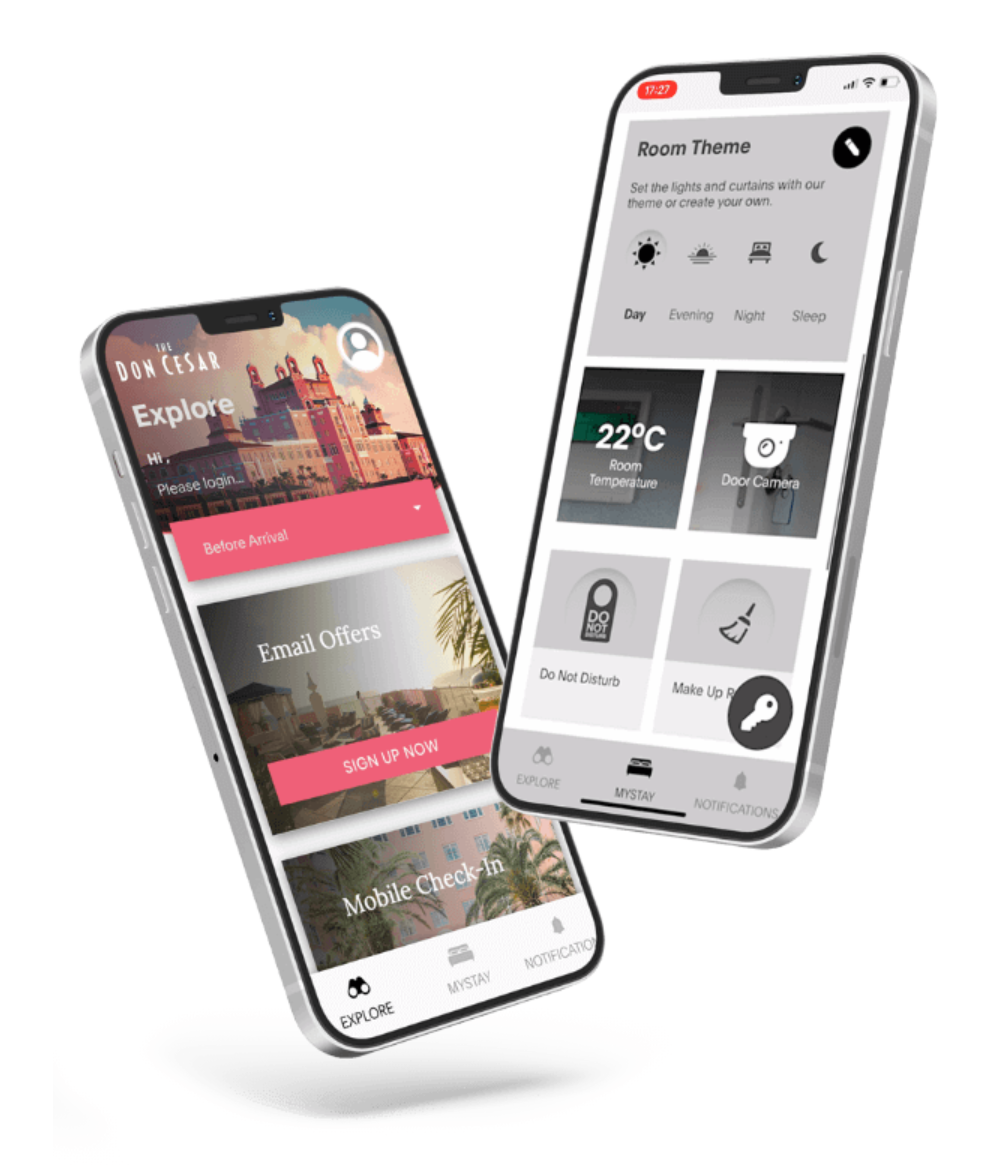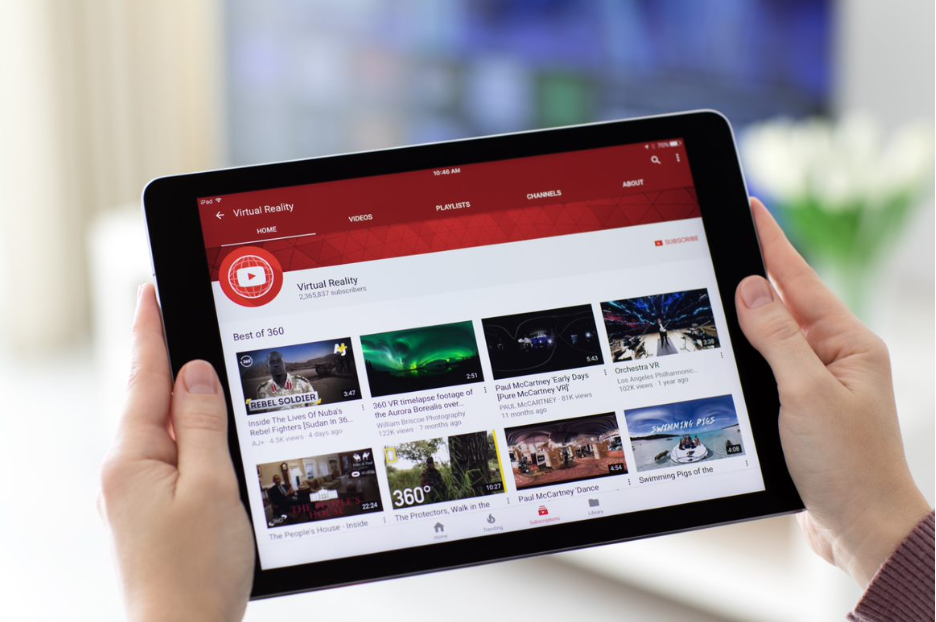Digital transformation has been trending in the past decade, yet not many people comprehend what it encompasses. For such a transformation in the hospitality and travel industry, it’s not enough to employ hotel management software or virtual hotel tools. While they are certainly beneficial, they are referred to as digitization.
The impact of digital transformation on the hospitality business is tremendous. This blog post explains what digital transformation is, gives some examples of successful stories, and how to create a strategy and bring it to your hotel.
What is Digital Transformation?
Definition of digital transformation
Digital transformation begins and ends with customer relations and engagement. While digitization refers to replacing analog data with digital formats, digital transformation refers to rethinking how the organization uses human resources, processes and technology to achieve new business goals. Most of the time, this also involves introducing the end customer to more active consumer approaches.
Digital transformation and customer experience
Unfortunately, it is not enough to create an app for your customers to be satisfied with your guest services. Customers want a personalized experience and the opportunity to immerse in new technologies. Being one step ahead of your competitors and looking towards innovative methods will always positively impact your customers.
Digital transformation drivers
Some of the main drivers for digital transformation include the need for data collection, analysis and transmission, smoother management operations, increasing staff productivity, enhancing products and customer experience and improving security.
Also :
- Collect, analyze and transmit data
- Streamline operations and processes
- Improve employee performance and productivity
- Enhance customer experience and product/service innovation
- Address compliance and security requirements
Some of the digital tools that help achieve these goals are artificial intelligence (AI), machine learning (ML), social media platforms, mobile phones, the Internet of Things (IoT), augmented and virtual reality (AR/VR) and more. These technologies are not new anymore, and people expect to see leading companies apply them.
Digital Transformation Examples
Digital transformation examples vary in the hospitality and tourism industry depending on the set business goals. However, some examples include reskilling employees, IT modernization, applying new digital tools and technologies to substitute employees in specific tasks, discovering customer pain points and changing work processes to adapt to their needs.
To clarify the meaning of digital transformation and show how it is implemented in reality, we will talk about two specific companies that have successfully completed the process and how they did it.
Netflix
One of these companies is Netflix – one of the largest streaming platforms available. It started as a mail-based DVD rental company but quickly saw through the status quo and started looking for more innovative solutions.
Today, Netflix’s success is based on its recognition of customer needs and delivery of affordable digital home entertainment with personalized offerings.
Domino’s
Another excellent example of digital transformation is Domino’s customer engagement strategy. They were the first company to create a “Pizza Tracker” that offered customers to track their orders and see how much time was left to deliver.
Another crucial moment of Domino’s transformation was their “Anyware” system through which you can order from different mobile devices, including smartphones, smartwatches, home assistants and more.
Digital Transformation Strategy For Hotels
One of the steps to creating successful hotel digital transformation strategies is assessing your current state. This involves mapping out your organization, structure, processes, skillset, culture, employees, budget, pain points and opportunities.
The next step is setting the right goal for your hotel. Do you want to improve service quality or optimize processes such as check-in or payments? Do you want to improve staff efficiency by employing digital tools? Is your goal to reduce costs or to gain a competitive advantage?
Setting a clear goal (or goals) will bring focus to your digital transformation journey. Once you’ve set your objectives, you can choose the right digitization tools to make progress toward reaching them.
For example, hotels looking to optimize processes can incorporate property management systems (PMS) or create a hotel mobile or web app for their new guests to check in without waiting in lines at the front desk.
For hotel owners who want to be ahead of their competition, it would be best to stay constantly updated with the latest digital technology trends such as mobile room keys and try to integrate them quickly.
Assessing your current state and identifying your goals will help you plan a budget and necessary funding, conduct gap analysis and create a roadmap to your goals. You can see what your business is missing and what needs to be done to complete the transformation process.
Bringing Digital Transformation to Your Hotel
To begin walking the road towards a successful digital transformation, it is crucial to realize the importance of three key elements: digital technology implementation, operational changes and cultural changes. If you fail to consider all three, the process will be incomplete.
If you want to bring digital transformation to your hotel, you also need to consider the key factors to success.
According to studies, these factors are five and include:
- Encouraging and giving employees the opportunity to work in new ways
- Frequent communication via traditional and digital channels
- Having the right, digital-savvy leaders in place
- Building capabilities for the workforce of the future
- Giving day-to-day tools a digital upgrade
Having a digital-savvy leader in your hotel’s organization is a key factor for success. Such a person can help evaluate opportunities and assign new roles to employees. Hotel owners and management should also educate employees, help them develop their talents and skills and assign integrators who are the connection between the traditional and digital ways of working.
Another key is good communication of goals, targets, performance indicators and achieved results.
FAQs
What is digital transformation in the hotel industry?
Digital transformation refers not only to the implementation of new innovative technologies in the travel and hospitality industry but also to a complete operational and corporate culture change. This is not an immediate process and often involves structural reorganization, new business models and focusing on innovative solutions.
How does technology affect hospitality companies?
Digital technologies help the hotel industry improve property management systems and customer experience tremendously. It allows hotel owners to gather, analyze and interpret customer data, trends and needs and thus increase revenue by placing personalized offers. On the other hand, hotel guests are satisfied by the tailored service, complete control and ease of use offered by the service provider.
What does digital transformation impact?
Digital transformation impacts the entire way of thinking about the future of the business. It involves looking into the “tomorrow” of customer expectations and requirements and finding a way to be the first one to offer a solution.
Such an innovative approach guarantees staying ahead of the competition, expanding your market opportunities, improving customer experience and optimizing internal processes and operations.




